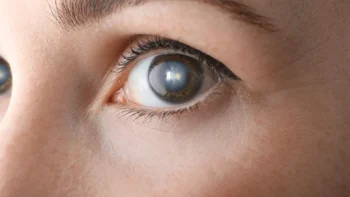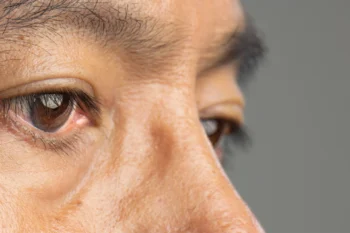If you’re tired of blurry vision and corrective lenses, you may wonder if LASIK surgery is right for you.
Who is LASIK For?
Laser-assisted in situ keratomileusis (LASIK) is refractive eye surgery to correct common vision problems like nearsightedness, farsightedness, and astigmatism. It’s one of the safest and most popular procedures. LASIK surgery is for most people with vision problems that would otherwise be managed with corrective glasses or contact lenses.
In this guide to LASIK in Las Vegas, we’ll walk you through the procedure, including what it treats, what to expect, and how to decide whether it’s right for you.
The choice of whether to get LASIK surgery can be daunting. If you’re not sure it’s worth it, or you want to know more about the benefits, you’re not alone.
Here are a few of the top reasons to get LASIK surgery.
1. Leave Contacts and Glasses Behind
Most people who seek LASIK have spent years dealing with their vision problems. Some have even spent decades wearing glasses or contacts.
While glasses or contacts are an easy way to correct your vision, they come at a cost. Contacts, in particular, can cause serious discomfort or sensitivity. The result can be itchiness, dry eyes, burning, redness, and headaches.
Those who travel, play sports, or have a hands-on career that relies on good eyesight, may find glasses and contacts can be a major inconvenience. Not everybody likes the look of eyeglasses either. For many, it can be a huge confidence boost to go glasses-free.
LASIK can correct refractive errors permanently, and allow you to leave the hassle of corrective lenses behind.
2. Experience Sharp and Clear Vision
After LASIK you’ll be able to see the world clearly — more clearly than you ever have before. More than 90% of people who have LASIK achieve 20/20 vision. 95% can achieve at least 20/40 vision.
A small percentage of people who get LASIK can even enjoy outcomes that surpass 20/20.
3. Save Money in the Long Run
While LASIK comes with an up-front cost, the surgery can work as a long-term investment that pays for itself over time. New glasses and replacement contact lenses can cost hundreds each year, on top of other expenses like contact lens solutions or repairs.
4. Visual Freedom
Many patients who get LASIK report complete visual freedom after the procedure. Realizing that you don’t need to use glasses or contacts anymore — you can see everything clearly, all the time — can lift a burden from your shoulders.
You can find relief even from the little things that have become second nature to you: You won’t have to find misplaced glasses, get repairs, or worry about having enough contact lens solution. You can’t fall asleep without taking your contacts out: no contacts! Instead of stress about your eyesight, you can focus on the rest of your life.
What’s the LASIK Process Like?
To begin the LASIK process, you’ll be asked to lie on your back in a reclining chair. Numbing drops will be placed in your eye and an instrument called a lid speculum will hold your eyelids open. Depending on the tools used, the surgeon might apply a ring on your eye that creates suction to the cornea. You might feel uncomfortable pressure and dimming of your vision.
With either a laser or a blade called a mechanical microkeratome, the surgeon makes a small incision and opens a corneal flap. They then use a special laser to change the shape of your cornea to improve vision.
While the laser is focused on your eye, you’ll be asked to stare at a light to keep your eye in a fixed position for about 60 seconds.
The procedure usually takes less than 10 minutes — less than one minute on each eye. The entire experience can be completed in less than 30 minutes.
While there can be discomfort, numbing drops are used to prevent any pain in the eyes. The recovery process begins within a few hours after the surgery. Most people can get back to their day-to-day life within 24 hours after the surgery.
Do You Need LASIK?
If you need glasses or contacts to see clearly, you’ve probably wondered what life might be like without them. LASIK offers a vision correction solution, but it might not be for everyone.
While every person is unique, The American Academy of Ophthalmology (AAO) has the following lists of requirements and recommendations for LASIK:
- You should be at least 18 years old
- Your eye prescription should stay stable for at least a year
- Your refractive error has to be within a treatable range
- Your corneas must be healthy
- Your overall eye health should be good
The AAO says people with the following conditions may not be good candidates for LASIK:
- An autoimmune disorder
- A weakened immune system
- Dry eyes
- Inflammation of the cornea
- Injuries to the eyes or lids
- Diseases like glaucoma, cataracts, and uveitis
- Any eye condition that causes thinning or bulging of the cornea
- Severe nearsightedness
- Large pupils or thin corneas
If you’re not sure whether you qualify or if LASIK is the right choice for your eyes, consult with your doctor or another eye specialist for a consultation.
LASIK in Las Vegas: Is LASIK Surgery Right For You?
If you’ve been thinking about LASIK as a solution for your blurred vision, it might be time to consider whether it’s an option for you.
Depending on your eyes and your vision goals, you might be a good candidate for surgery. With high success rates and quick recovery times, LASIK offers a way to reclaim your eyesight and leave the stress of corrective lenses behind.
Like any other surgical procedure, LASIK involves some risks. Complications are rare, but some people have reported dry eyes, under or overcorrections, astigmatism, and corneal ectasia.
The best way to determine whether or not LASIK is the right choice for you is to work with a highly qualified surgeon to evaluate your eyes. To get a consultation today, contact us — or take a look at our website to learn more about our customized Las Vegas LASIK procedure.





